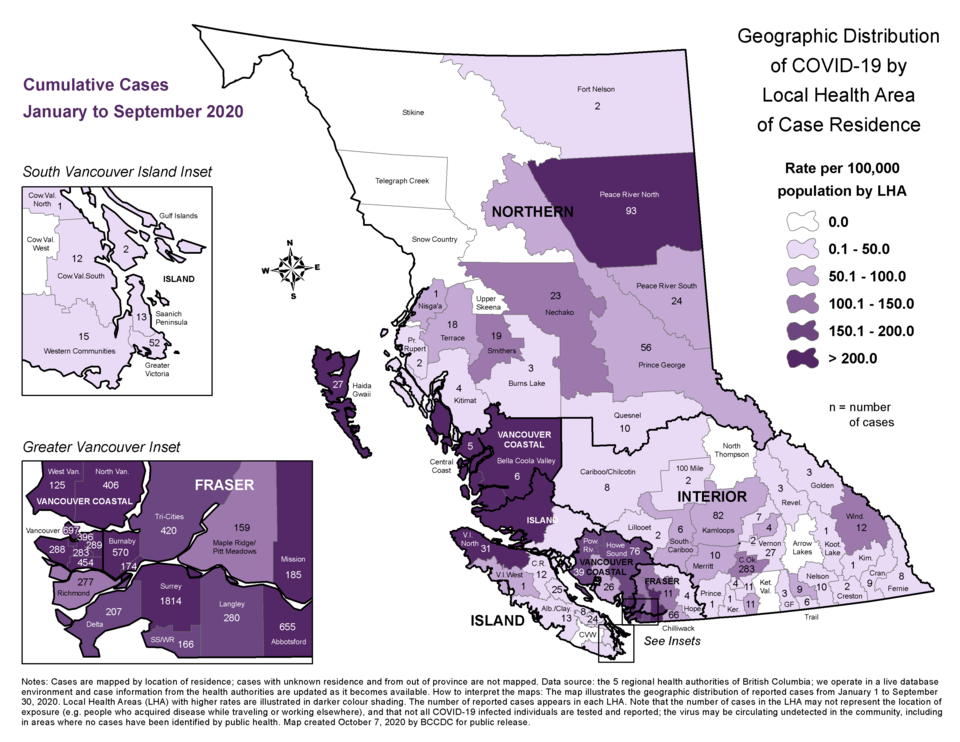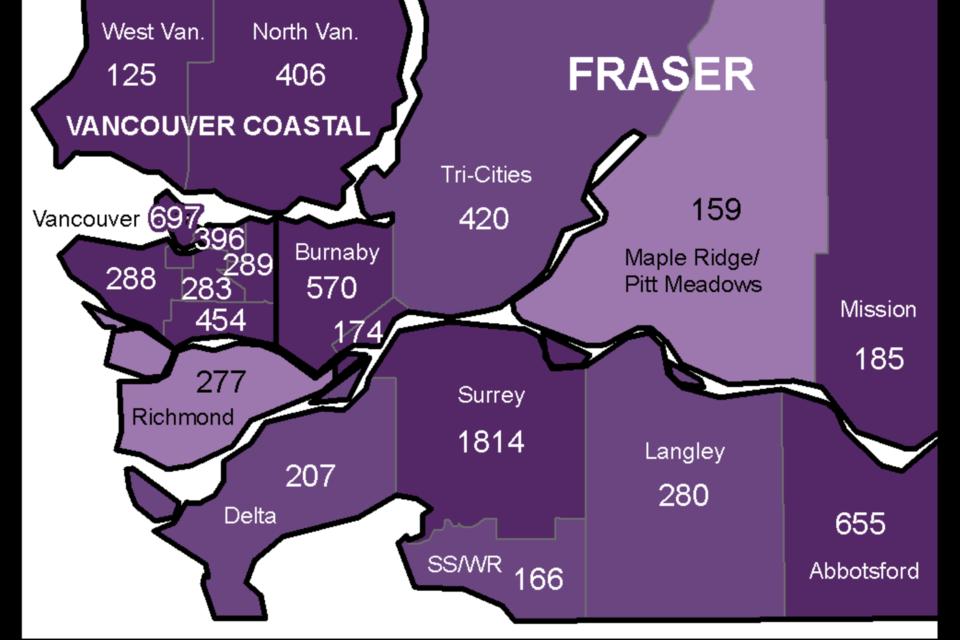Cases of COVID-19 surged 38% across the Tri-Cities in the month of September, according to new data released by the BC Centre for Disease Control.
Total cases grew to 420 people in September from 305 in August, marking an increase of 115 cases, only slightly down from August’s 127 cases, but continuing a trend of significant growth compared to earlier in the pandemic.
The number of people infected with COVID-19 in the Tri-Cities has grown substantially since the first surge of the virus in the spring. In the seven months between January and the end of July, the three cities registered only 178 cases, though Provincial Health Officer Dr. Bonnie Henry has repeatedly stressed COVID-19 prevalence across the B.C. was almost certainly undercounted in the early stages of the virus due to a lack in testing capacity.
Cumulative caseloads in the Tri-Cities are now roughly equivalent to 170 cases per 100,000 people, slightly lower than Burnaby and Surrey, but higher than Richmond or Maple Ridge.
It’s crucial to note that caseloads are mapped by location of residence, a fact that may skew the understanding of certain outbreaks. Take the case of the outbreak at Superior Poultry Processing, the Tri-Cities’ largest in which over 60 cases were identified. Workers who commuted to the Coquitlam facility but caught and spread the virus in Tri-Cities — a large share, according to reporting by the Tri-City News — would be counted as part of another jurisdiction.
It's also not clear the impact the lack of a Tri-Cities high volume test collection centre has had throughout the course of the pandemic, as a new Fraser Health-run facility only opened in Coquitlam this Monday.

Still, there are some signs of progress, despite four COVID-19 exposures reported in as many Tri-City schools this week. Since September, the Tri-Cities health delivery area — which also includes Burnaby, New Westminster and Maple Ridge — has seen a significant decline in the number of per-capita COVID-19 cases, a downward trend echoed across the province in recent weeks.
Earlier this week, Dr. Henry attributed much of the decline from the summer spike in cases to her Sept. 8 order to shut nightclubs and banquet halls and restrict the consumption of alcohol in bars.
“This virus is in our community. We aren’t going to eradicate it from our community,” she said Thursday. “What these numbers tell us and the active cases tell us, is we’re in that balance.”
But that balance has come at no small cost: on Thursday, British Columbia recorded over 10,000 cases of COVID-19 since the start of the pandemic.
“Today we’ve reached a threshold that makes us pause,” said Dr. Henry. “We know that’s an underrepresentation… [and] as we have seen before, that can change very quickly.”



